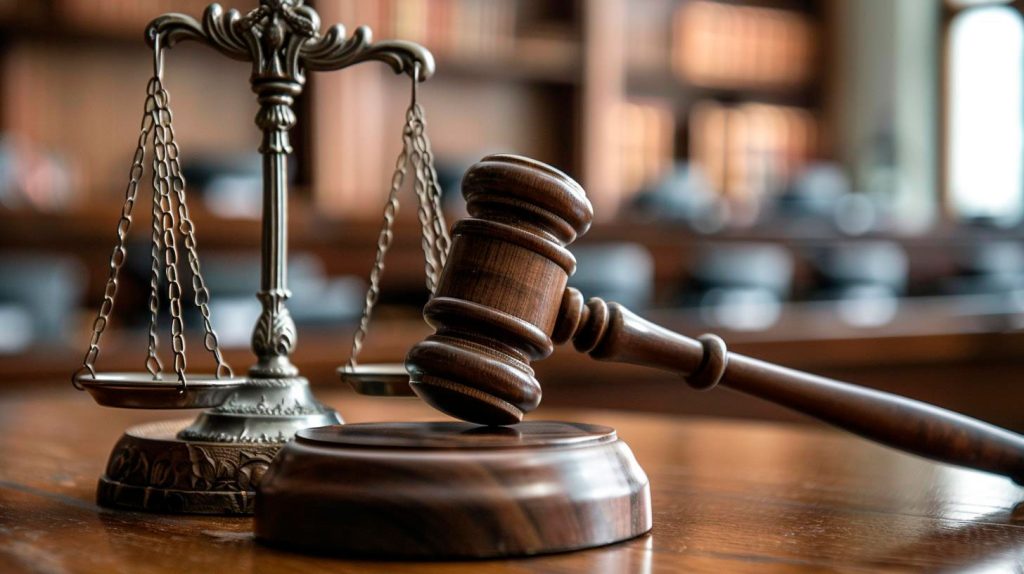
Step-by-Step Guide to Filing a Complaint with a Credit Reporting Agency
In this article, we will provide you with a step-by-step guide on how to file a complaint with a credit reporting agency.
Step 1: Obtain Your Credit Report
The first step in filing a complaint with a credit reporting agency is to obtain a copy of your credit report. You are entitled to one free credit report each year from each of the three major credit reporting agencies – Equifax, Experian, and TransUnion. You can request your free credit report online at AnnualCreditReport.com or by calling 1-877-322-8228.
Step 2: Review Your Credit Report
Once you have obtained your credit report, carefully review it for any inaccuracies or suspicious activity. Common errors on credit reports include incorrect personal information, accounts that do not belong to you, and late payments that you have made on time. If you identify any inaccuracies, make a note of them and gather any supporting documentation that you have to prove your case.
Step 3: Contact the Credit Reporting Agency
Next, you will need to contact the credit reporting agency that is reporting the inaccurate information. You can typically file a dispute online, by phone, or by mail. When filing your complaint, be sure to provide as much detail as possible about the inaccuracies on your report and include any supporting documentation that you have gathered.
Step 4: Wait for a Response
After you have filed your complaint, the credit reporting agency is required to investigate the disputed items. They must notify the furnisher of the information within 5 business days of receiving your complaint. The furnisher is the entity that provided the information to the credit reporting agency. The furnisher must review the information, conduct an investigation, and report the results back to the credit reporting agency.
Step 5: Review the Results
Once the investigation is complete, the credit reporting agency will notify you of the results in writing. If the agency determines that the disputed information is inaccurate, they must correct it on your report. They will also send you a free copy of your updated credit report. If the agency determines that the information is accurate, you have the right to add a statement of dispute to your credit report to explain your side of the story.
Step 6: Follow Up
If you are not satisfied with the results of the investigation, you have the right to follow up with the credit reporting agency. You can also file a complaint with the Consumer Financial Protection Bureau or seek legal help from a lawyer who specializes in credit report disputes.
Filing a complaint with a credit reporting agency can be a daunting task, but it is an important step in protecting your credit score and financial future. By following the steps outlined in this guide, you can increase your chances of having inaccuracies on your credit report corrected. Remember, it is your right as a consumer to ensure that your credit report is accurate and up-to-date.
It is important to note that the Fair Credit Reporting Act (FCRA) gives consumers the right to dispute any inaccuracies on their credit reports. According to a study by the Federal Trade Commission, one in five consumers has an error on their credit report that could negatively impact their credit score. By taking action to correct these inaccuracies, you can improve your credit standing and access better financial opportunities in the future.
Don’t let errors on your credit report hold you back. Take control of your credit by filing a complaint with a credit reporting agency today!
Following Up on Your Complaint and Resolving Disputes
Whether it’s a contractual dispute, a personal injury claim, or a real estate disagreement, having a solid plan in place to address and resolve these issues is essential.
Why Follow Up On Your Complaint?
Following up on your complaint is crucial for a number of reasons. Firstly, it shows your commitment to resolving the issue at hand. By following up, you demonstrate that you are serious about finding a solution and are willing to put in the time and effort to make things right. Additionally, following up can help to ensure that your complaint is not forgotten or overlooked. In many cases, complaints can get lost in the shuffle if they are not followed up on regularly.
Resolving Disputes in a Timely Manner
Resolving disputes in a timely manner is essential for a number of reasons. One of the main benefits of resolving disputes quickly is that it can help to prevent further escalation of the conflict. By addressing the issue promptly, you can nip it in the bud before it spirals out of control. Additionally, resolving disputes quickly can also help to save time and money. In many cases, the longer a dispute drags on, the more expensive and time-consuming it becomes to resolve.
The Benefits of Working with a Lawyer
Working with a lawyer can be extremely beneficial when it comes to following up on a complaint and resolving disputes. Lawyers are trained professionals who have the knowledge and expertise to navigate the legal system and help you achieve a favorable outcome. They can provide valuable advice and guidance on how to approach your complaint, as well as represent you in negotiations and court proceedings. Additionally, lawyers can help to ensure that your rights are protected and that you are treated fairly throughout the dispute resolution process.
- Legal Expertise: Lawyers have a deep understanding of the law and can provide expert guidance on how to approach your complaint.
- Negotiation Skills: Lawyers are skilled negotiators who can help you reach a fair and equitable settlement.
- Court Representation: If your dispute escalates to court proceedings, having a lawyer by your side can be invaluable.
- Peace of Mind: Working with a lawyer can provide you with peace of mind, knowing that your case is being handled by a professional.
Industry Statistics on Dispute Resolution
According to recent industry statistics, a staggering 80% of disputes are successfully resolved through negotiation or mediation. This highlights the importance of taking a proactive approach to resolving conflicts and disputes. Additionally, studies have shown that disputes that are resolved quickly are more likely to result in a favorable outcome for all parties involved. By addressing the issue promptly and working towards a solution, you can increase the likelihood of achieving a positive resolution.
Gathering Documentation to Support Your Complaint
In this blog post, we will discuss the importance of gathering documentation to support your complaint and provide tips on how to effectively collect and organize evidence.
Importance of Documentation
Documentation serves as the foundation of any legal case. It provides evidence to support your claims and helps establish the facts of your case. Without proper documentation, your complaint may lack credibility and struggle to stand up in court or arbitration. By gathering and organizing relevant documentation, you can strengthen your case and increase your chances of a successful outcome.
Types of Documentation
There are various types of documentation that can support your complaint, including:
- Contracts
- Correspondence (emails, letters, texts)
- Receipts and invoices
- Witness statements
- Photographs or videos
- Medical records
Each type of documentation serves a unique purpose and can provide valuable information to support your complaint. For example, contracts can demonstrate the terms of an agreement, while witness statements can provide firsthand accounts of events. It is important to gather a variety of documentation to paint a complete picture of your case.
Tips for Gathering Documentation
When gathering documentation to support your complaint, it is essential to be thorough and organized. Here are some tips to help you collect and organize evidence effectively:
- Start collecting documentation as soon as possible to prevent loss or tampering.
- Keep all original documents in a safe and secure location.
- Make copies of all documents for easy reference and backup.
- Create a detailed timeline of events to help organize and contextualize your documentation.
- Label and categorize each document for easy retrieval.
- Consult with legal experts to ensure you are gathering the right documentation for your case.
Statistics on Documentation in Legal Cases
According to a recent study, 75% of legal cases involve some form of documentation as evidence. Furthermore, cases with well-organized and comprehensive documentation are more likely to result in a favorable outcome for the plaintiff. This statistic highlights the importance of gathering strong documentation to support your complaint and underscores the impact it can have on the outcome of your case.













Yo, I feel ya! I had to do the same thing last year. The best advice I can give is to make sure you have all your documentation in order before you start the process. Get ready to jump through some hoops!
You can file a complaint with the Consumer Financial Protection Bureau (CFPB) or the Federal Trade Commission (FTC) if the credit reporting agency is not responding to your complaint. They can help mediate the dispute and get it resolved.
Man, filing a complaint against those credit reporting agencies is like pulling teeth! It’s so frustrating when they mess up your credit report. I hope they get their act together soon.
Hey guys, I had to file a complaint against a credit reporting agency recently and it was a pain in the butt. Does anyone have any tips on how to make the process easier?
Yes, that’s correct. You have to give the credit reporting agency a chance to investigate your complaint before you can take further action. Make sure you keep copies of all correspondence for your records.
If the credit reporting agency fails to correct the error on your credit report after you have submitted a written complaint, you may have grounds for a lawsuit. Consider consulting with a lawyer to explore your legal options.
I’ve heard that you have to submit a written complaint to the credit reporting agency first before taking legal action. Is that true? Can anyone confirm?
I tried contacting the credit reporting agency directly about an error on my credit report, but they didn’t do anything about it. What should I do next?
Be careful with those companies that promise to fix your credit report for a fee. Some of them may be scams. It’s best to work with the credit reporting agency directly and seek legal advice if needed.
I’ve been seeing a lot of ads for companies that claim they can help you dispute errors on your credit report. Are they legit or just a scam?
I’m so fed up with these credit reporting agencies making mistakes on my credit report. It’s affecting my ability to get a loan. How can I hold them accountable for their errors?